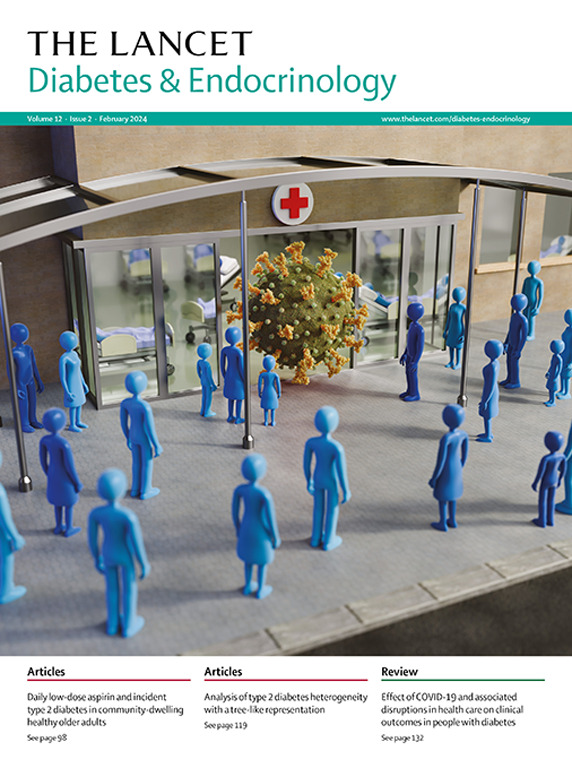Managing adults with screen-detected islet autoantibody positivity: a pragmatic framework
IF 41.8
1区 医学
Q1 ENDOCRINOLOGY & METABOLISM
引用次数: 0
Abstract
New disease-modifying therapies, such as teplizumab, offer opportunities to delay the clinical onset of type 1 diabetes but require islet autoantibody screening to identify individuals at increased risk of progression to diabetes. As type 1 diabetes screening programmes expand, clinicians will increasingly encounter a new group of people: adults who test positive for islet autoantibodies but have not yet been diagnosed with diabetes. Although international guidelines outline management for both children and adults, considerable uncertainties remain, particularly for adults. In adults with islet autoantibody positivity, the lower risk of progression to type 1 diabetes compared with children, combined with the high background prevalence of mild non-autoimmune dysglycaemia, presents substantial challenges for clinical management. This Personal View aims to add clarity to international consensus guidelines, proposing a pragmatic framework for managing adults with islet autoantibody positivity. Although fitting within a UK National Health Service setting, we feel this framework is also relevant to other health systems.管理筛查检测到胰岛自身抗体阳性的成人:一个实用的框架
新的疾病改善疗法,如teplizumab,提供了延迟1型糖尿病临床发病的机会,但需要胰岛自身抗体筛查来识别糖尿病进展风险增加的个体。随着1型糖尿病筛查项目的扩大,临床医生将越来越多地遇到一个新的人群:胰岛自身抗体检测呈阳性但尚未被诊断为糖尿病的成年人。尽管国际准则概述了儿童和成人的管理,但仍存在相当大的不确定性,特别是对成人而言。成人胰岛自身抗体阳性,与儿童相比,进展为1型糖尿病的风险较低,加上轻度非自身免疫性血糖异常的高背景患病率,为临床管理带来了重大挑战。本个人观点旨在增加国际共识指南的清晰度,提出一个管理成人胰岛自身抗体阳性的实用框架。虽然适合英国国家卫生服务设置,我们认为这一框架也适用于其他卫生系统。
本文章由计算机程序翻译,如有差异,请以英文原文为准。
求助全文
约1分钟内获得全文
求助全文
来源期刊

The Lancet Diabetes & Endocrinology
ENDOCRINOLOGY & METABOLISM-
CiteScore
61.50
自引率
1.60%
发文量
371
期刊介绍:
The Lancet Diabetes & Endocrinology, an independent journal with a global perspective and strong clinical focus, features original clinical research, expert reviews, news, and opinion pieces in each monthly issue. Covering topics like diabetes, obesity, nutrition, and more, the journal provides insights into clinical advances and practice-changing research worldwide. It welcomes original research advocating change or shedding light on clinical practice, as well as informative reviews on related topics, especially those with global health importance and relevance to low-income and middle-income countries. The journal publishes various content types, including Articles, Reviews, Comments, Correspondence, Health Policy, and Personal Views, along with Series and Commissions aiming to drive positive change in clinical practice and health policy in diabetes and endocrinology.
 求助内容:
求助内容: 应助结果提醒方式:
应助结果提醒方式:


